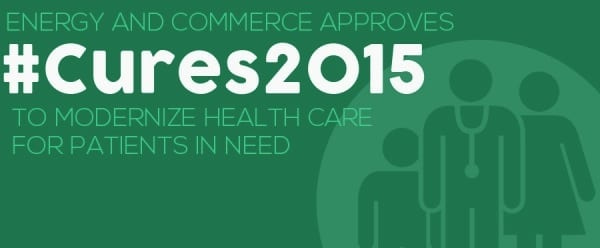On July 10, 2015, the House of Representatives approved the 21st Century Cures Act (H.R. 6) with a vote of 344-77.
This act will launch healthcare into the 21st century by “investing in science and medical innovation, incorporating the patient perspective, and modernizing clinical trials, to deliver better, faster cures to more patients and loved ones in need” as explained by the Energy and Commerce Committee.
The 21st Century Cures Act asks for an annual increase of 3% per year in budget for the National Institutes of Health (NIH) to accommodate for inflation. It would provide an additional $2 billion per year for 5 years to found the “NIH Innovation Fund.” Another feature of this act is to release deidentified data from NIH clinical trials so that more researchers would have access to the data.
This bill aims to speed up new drug and device development and approval. If this bill is turned into a law there are some concerns about how it would affect the safety of medical products. Currently, almost all drugs are processed through the FDA within 6-10 months of being received. A third of new drugs are approved on a single trial with a median size of 760 patients, and studies last about 6 months or less. (These drugs include antibiotics and antifungals.) We need to carefully strike a balance of maintaining patient safety while getting drugs to market even faster.
Not only would the 21st Century Cures Act affect drug development and approval, it would also impact medical devices. In the past, medical devices have not been evaluated as rigorously as drugs.
The bill has an entire section dedicated to precision medicine, Title II, Subtitle C. This section requires the FDA to provide guidance to define what a precision drug is and “to assist sponsors in the development of such a drug, including clinical studies.” It requires the FDA to teach companies methods to identify subsets of people with a disease that will likely respond to a drug. These companies can then market this drug to the specific group that will likely respond and have orphan drug exclusivity for 7 years. This means that generic drugs cannot be produced during this time so there is no competition.
Authors of the bill commented, “Today, we took a big leap on the path to cures, but we still have much work left to do. The 344 votes today should be a springboard for action. On to the Senate.”
You can read the bill for yourself and follow the updates when it is voted on by the Senate.

